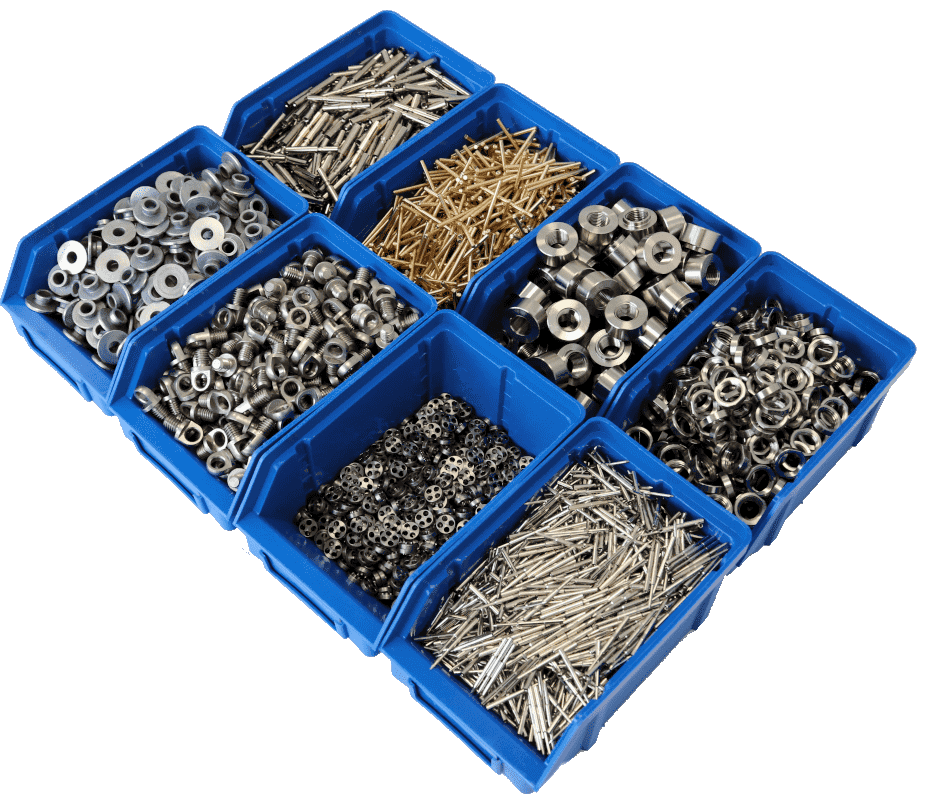Introduction: The Genesis of Precision Machined Parts
In the early days of manufacturing, machined parts were created by the hands of skilled craftsmen using hand tools. The transition from these conventional methods to modern CNC machined components is an exciting journey that reveals the heart of engineering and technology. This transition has ushered in an era where precision machined parts are essential in industries as diverse as aerospace, automotive, and medical.
Conventional Machining vs. CNC Machining
Conventional machining relies on manual manipulation, requiring high skill levels and time. CNC (Computerised Numerical Control), on the other hand, uses computerized controls for precise, repetitive, high-volume production. The critical difference is precision: while manual machining can be subject to human error, CNC guarantees accuracy to fractions of a millimeter.
Understanding CNC Machined Parts: A Customer’s Perspective
CNC (Computer Numerical Control) machined parts represent a technological leap in manufacturing, offering precision and consistency that traditional machining methods can’t match. For customers who may be new to this area, it’s essential to recognize the value and capabilities of CNC machining. Here’s a closer look from a customer’s perspective.
- Precision and Accuracy: CNC machining is controlled by computerized systems that follow precise design specifications to achieve tolerances, often in the micrometer range. Unlike manual machining, where human error can be a factor, CNC machines offer unparalleled consistency and repeatability, essential for the aerospace, automotive, and medical industries.
- Complex Geometries: With CNC machining, intricate shapes and geometries that were previously impossible or extremely time-consuming to produce can now be achieved. This capability opens up new avenues for innovation and design, allowing for more intricate and functionally optimized parts.
- Efficiency and Scalability: CNC machines can run 24/7 with minimal human intervention, resulting in faster production times and the ability to scale up as needed. Small or large production runs can be managed with the same efficiency, providing the flexibility to meet fluctuating demand.
- Material Diversity: Whether it’s metals such as aluminum, steel, titanium, or various alloys and plastics, CNC machines can work with multiple materials. This versatility ensures that the desired mechanical and aesthetic properties can be achieved for any given application.
- Cost-Effectiveness: Although the initial setup can be more intensive, CNC machining offers significant cost benefits in the long run. Automated processes reduce labor costs, and the high level of precision reduces waste, resulting in a more economical production process.
- Comparison with Traditional Machining: Understanding CNC machining also means recognizing how it differs from conventional methods. While traditional machining relies on manual control and often requires multiple setups, CNC machining offers a seamless, automated experience. The efficiency, accuracy, and sophistication possible with CNC technology make it a preferred choice for modern manufacturing needs.
- Eco-Friendly Practices: Modern CNC machines often include features that promote energy efficiency and waste reduction. By optimizing toolpaths and reducing material waste, CNC machining contributes to more sustainable manufacturing practices.
- Customization Options: CNC machining offers unprecedented customization for customers needing bespoke solutions. Designs can be quickly tweaked and adapted, creating unique or specialized parts to meet specific requirements.
Guidelines for an Ideal CNC Machined Parts Supplier
Choosing the right CNC machined parts supplier can impact any project’s quality, efficiency, and success. An ideal supplier doesn’t just supply parts; they act as a collaborative partner, ensuring that each component meets the required specifications and standards. Whether small machined parts for the electronics industry or intricate brass machined parts for vintage restoration, the guidelines for selecting a supplier remain the same. Here are some of the critical factors to consider when choosing a supplier of CNC machined components:
Quality Standards: ISO and Beyond
Adherence to international quality standards, such as ISO certification, is often the first benchmark when evaluating a supplier of CNC machined parts. But a true industry leader goes beyond these certifications. They should have a robust quality management system that ensures consistent adherence to the tightest tolerances and most stringent industry regulations. From material selection to final inspection, a systematic approach to quality assurance demonstrates a supplier’s commitment to excellence and ability to meet customer expectations.
Measurement Room: Assurance of Precision
In the world of CNC machined parts, precision is paramount. A dedicated measuring room with advanced inspection technology, such as coordinate measuring machines (CMMs) and laser scanners, symbolizes the supplier’s commitment to accuracy. Such space, temperature, and humidity control ensures that each part is measured under optimum conditions, reducing the risk of error. The availability of accurate measuring tools and trained personnel means that the supplier takes accuracy seriously, building confidence in its capabilities.
Investment in State-of-the-art Machines
The technology used to machine parts speaks volumes about a supplier’s ability to deliver quality products. Investing in the latest CNC machines and software platforms demonstrates a forward-thinking approach that embraces innovation and efficiency. Whether dealing with a small machined part or a complex metalworking component, a supplier with the latest machinery can guarantee shorter lead times, greater accuracy, and more cost-effective solutions. Investing in state-of-the-art machinery signals a commitment to continuous improvement and the delivery of products that meet or exceed industry standards.
Understanding CNC machined parts from a customer’s perspective means appreciating the technological advances that enable superior quality, functionality, and flexibility. Whether it’s small machined parts or large complex assemblies, the potential of CNC machining is redefining what’s possible in modern manufacturing, offering a wide range of benefits to meet today’s industrial demands. In the context of precision and engineering excellence, companies like SABNER significantly leverage CNC technology to drive innovation and efficiency in the industry.

